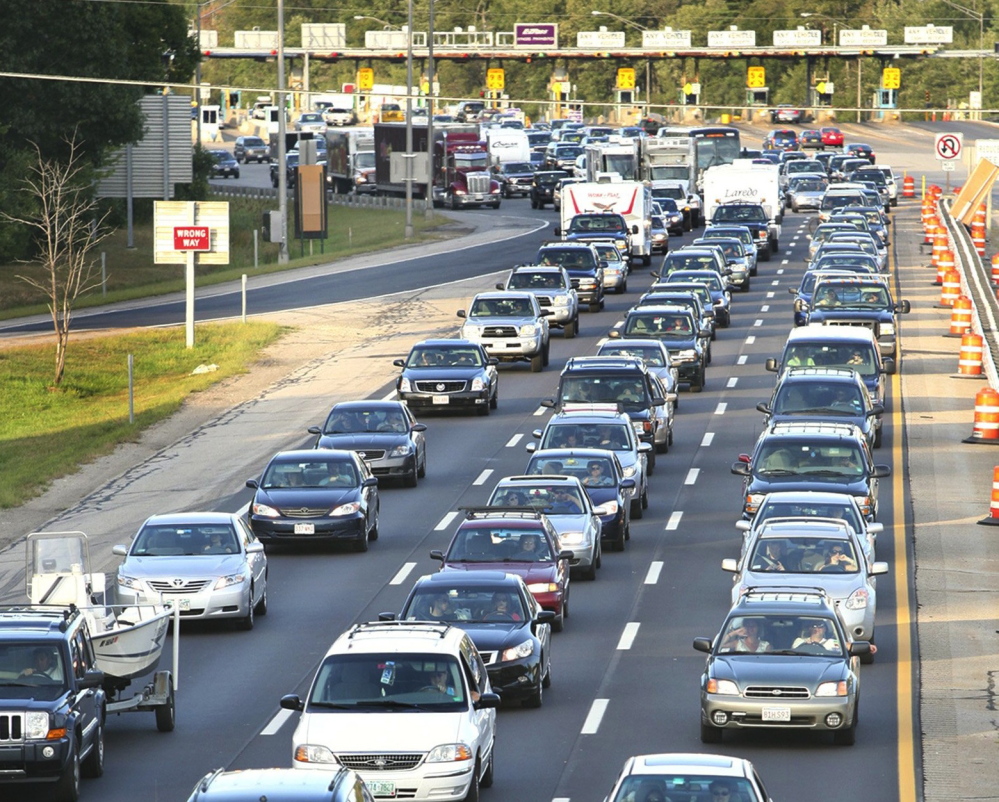WELCOME ABOARD, GOVERNOR
Back in 2012, when he was trying to explain how the Internal Revenue Service was as bad as Hitler’s Gestapo, Gov. LePage told a Vermont reporter that he was not aware that his comments had caused any controversy. “I don’t read the newspapers,” he said.
It was pretty consistent with what he’s said at other times, like when he told a group of schoolchildren to watch television instead of reading to get their news. “I’m not a fan of newspapers,” the governor told the kids.
So, it was a surprise this week when Gov. LePage, identifying himself as the “commander in chief of the Maine National Guard,” called the Press Herald newsroom to demand to know the source of a story involving one of the state’s National Guard units, the 133rd Engineer Battalion.
The governor didn’t stay on the phone long enough to say how he learned about the story, but we can only assume that he read it on Page 1 of Wednesday’s newspaper, so he must be reading us, after all.
If that’s the case, we are proud to welcome Gov. LePage to our readership and invite him to write us a letter from time to time, so he can share his views with his fellow readers. Even better, we’d welcome him to drop in and talk to our editorial board.
We know he was just kidding about bombing our building (you were, right?), and he won’t be the only reader who gets mad at us from time to time. But we like people who aren’t shy about expressing their opinions, so we hope we’ll hear from the governor more often.
HOARDING, NO JOKE
Hoarding, which might look like an entertaining quirk on reality TV, is a real-life mental disorder, and one that poses real-life threats to public safety.
The compulsion to keep and store mounds of junk is not just bad housekeeping, it also creates fire hazards and makes it more difficult for emergency medical personnel and firefighters to find the inhabitants of a building during a blaze.
The danger is no joke. A Melbourne, Australia, fire department studied 10 years of data and found that hoarders were involved in only 0.25 percent of fires, but 24 percent of those fires caused a fatality. They also found that only 40 percent of those fires were contained to the room where they started, compared to 90 percent of fires in households where there’s no hoarding.
This is an example of the complex intersection of traditional police and rescue work and mental health intervention. These public safety officers need their communities’ full support, including crisis training to prepare them for people who cannot always act in their own safety.
CITY NEEDS TO DEGREASE
Economists talk about a problem called “the tragedy of the commons,” which describes what happens when a decision that makes sense for individuals can have disastrous results if everybody does it. In Portland, we could call it “the tragedy of the sewers.”
The city has benefited greatly from becoming a “foodie town,” but there’s a downside to everything.
Fats, oils and grease build up in the sewer system and have to be dug out to keep it working. The city is working with restaurants to keep these substances from going down the drains. New restaurants are required to install grease traps in their kitchens, and existing restaurants may be called on to do the same.
Letting a little grease go down the drain will always look like a good deal for the person who is trying to makes it disappear as quickly as possible. But collectively, a backed-up sewer system is a price that everybody has to pay. The city should enact strict policies to keep restaurant grease out of our sewers, even if restaurant owners (and their customers) might not like it.
STILL WAITING FOR TOLLBOOTH
Maine Turnpike Authority Executive Director Peter Mills is a patient man. He has waited two years for the results of a planning study that has come up with much the same findings of a similar study in 2007 – which is that the turnpike needs a new tollbooth that combines a highway-speed electronic toll for E-ZPass customers, and cash booths for everyone else.
People who have driven south of Maine on Interstate 95 would recognize the same setup in New Hampshire.
As in 2008, the opposition continues to come from residents of York. They want to see the tollbooth there replaced with all-electric tolling, which would send bills to the drivers without E-ZPass, a system the consultants say would not be practical in Maine, where so much traffic comes from out of state.
Mills may be patient, but those of us who don’t live in York are ready to see some improvement. If New Hampshire can do it, why can’t Maine?
Send questions/comments to the editors.



Success. Please wait for the page to reload. If the page does not reload within 5 seconds, please refresh the page.
Enter your email and password to access comments.
Hi, to comment on stories you must . This profile is in addition to your subscription and website login.
Already have a commenting profile? .
Invalid username/password.
Please check your email to confirm and complete your registration.
Only subscribers are eligible to post comments. Please subscribe or login first for digital access. Here’s why.
Use the form below to reset your password. When you've submitted your account email, we will send an email with a reset code.